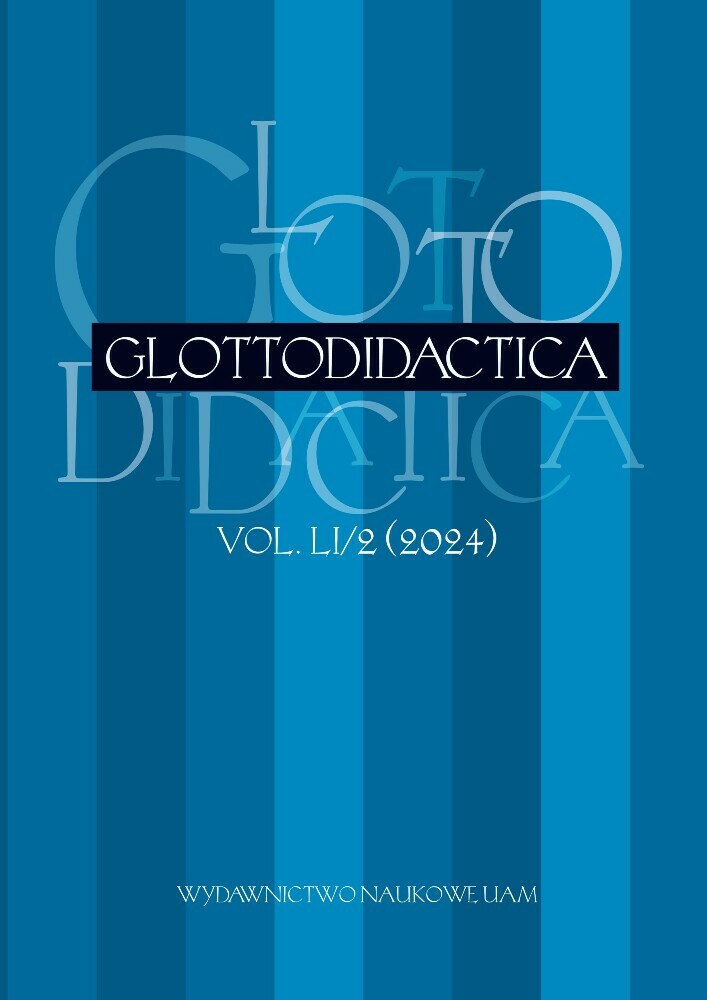Abstract
This article presents the findings of a case study conducted at the 2nd High School of Intercultural Education in Ioannina, Greece. In the first part, recent statistics on the education of students from refugee and migrant backgrounds are presented, as well as an analysis of concepts such as multilingualism, multilingual and intercultural competence, and multilingual and intercultural education. In the second part, the authors provide an overview of the school’s multilingual development and evaluates key research areas, including the languages spoken by students, their level of proficiency, communication needs, and interventions aimed at fostering the school’s multilingual and intercultural identity. Primary data were collected through questionnaires and the observational research method. The article concludes with recommendations for promoting intercultural awareness and multilingualism as essential elements in school communities. This work is part of the school’s participation in the Erasmus+ project“MaMLiSE: Majority and Minority Languages in School Environment: Helping teachers, pupils, and parents.”
References
Androulakis, G. (2008). Educational linguistics. In: G. Androulakis / C. Xydopoulos (eds.), Linguistic development: Introductory issues in linguistics (pp. 109–137). Patras: EAP.
Beacco, J.-C. / Byram, M. (2007). From linguistic diversity to plurilingual education: Guide for the development of language education policies in Europe. Strasbourg: Council of Europe, Language Policy Division. https://www.coe.int/en/web/language-policy/from-linguistic-diversity-toplurilingual-education-guide-for-the-development-of-language-education-policies-in-europe
Cavalli, M. / Coste, D. / Crişan, A. / Ven van de, P.-H. (2009). Plurilingual and intercultural education as a project (Platform of resources and references for plurilingual and intercultural education). Strabourgh: Language Policy Division. https://rm.coe.int/plurilingual-and-interculturaleducation-as-a-project-this-text-has-be/16805a219f
Chatzidaki, A. (2015). Harnessing multilingualism and multiculturalism in schools through the“language awareness / eveil aux langues” approach. In: M. Tzakosta (ed.), Language learning and teaching in multicultural environments: Integrating language divergence and linguistic diversity in the classroom (pp. 90–110). Athens: Gutenberg-Dardanos.
Gaidartzi, A. (2018). Perceptions of teachers, bilingual students and parents of immigrant origin around bilingualism: Methodological issues and review of research data. Dialogues. Theory and practice in education and education sciences, 4, 83–94.
Koiliari, A. (2005). Multilingualism and language education: A sociolinguistic approach. Thessaloniki: Vanias.
Koiliari, A. (2015). The stakes of multilingualism in Greek education. Science of Education, Thematic issue, 210.
Koutroumpeli, A. (2018). Teachers’ views on multilingualism and language ‘management’ in the Greek educational system. https://dspace.uowm.gr/xmlui/handle/123456789/2367
MaMLiSE: Majority and Minority Languages in School Environment: Helping teachers, pupils and parents (2020–2023). http://mamlise.home.amu.edu.pl/
Mouti, A. / Maligoudi, H. / Gogonas, N. / Gaidartzi, A. (2023). Multilingualism and educational linguistics. https://repository.kallipos.gr/handle/11419/9279
Skourtou, E. (2001). Bilingualism. Second language teaching. In: Th. Dragonas / E. Skourtou / A. Fragoudaki (eds.), Education: Cultural differences and social inequalities (vol. A: Social identities) (pp. 184–217). Patras: EAP.
Skourtou, E. / Kourtti-Kazoulli, V. / Sella-Mazi, E. / Hadjidaki, A. / Androussou, A. / Revithiadou, A. / Tsokalidou, P. (2016). Bilingualism & teaching Greek as a second language. https://www.researchgate.net/publication/309291532_Diglossia_kai_Didaskalia_tes_Ellenikes_os_Deuteres_Glossas
Sotiropoulou, G.E.A. (2024). Bilingualism and family language policy: The case of first generation immigrant families in Greece. PhD dissertation, Aristotle University of Thessaloniki. https://ikee.lib.auth.gr/record/357172
Svarna, E. (2022). The educational needs of migrant students, perceptions and intercultural competence of teachers. MA dissertation, University of Thessaly.
Szczepaniak-Kozak, A. / Farrell, A. / Ballweg, S. / Daase, A. / Wąsikiewicz-Firlej, E. / Masterson, M. (2023). Promoting multilingual practices in school and home environments. Perspectives from Germany, Greece, Ireland and Poland. Goettingen: V&R Unipress. DOI: https://doi.org/10.14220/9783737015639
Tsakaloudi, A. / Palaeologou, N. (2021). The practice of European schools on native language and multilingualism: Recording teachers’ views. Education Sciences, 3, 310–331. https://ejournals.lib.uoc.gr/edusci/article/download/1561/1448/2891
Tsokalidou, R. (2015). Bilingualism and education: From theory to practice and social action. Language Education, 35, 387–398. https://www.researchgate.net/publication/288128388_Diglossia_kai_Ekpaideuse_apo_te_theoria_sten_praxe_kai_sten_koinonike_drase
UNHCR (2023). https://www.unhcr.org
UNHCR (2023). https://www.unhcr.org/gr/statistics
UNHCR, Inter-Agency Coordination Greece (2023). Key findings of 2022 Protection monitoring of refugees in Greece, April 2023. https://data.unhcr.org/en/documents/download/100208
UNICEF (1990). https://www.unicef.org
Vichou, E. (2019). Multilingualism and multiculturalism as means for the promotion of intercultural education. Policies for managing cultural diversity in Europe and Greece. Comparative study Greece-
Sweden-Germany. MA dissertation, University of Piraeus. https://dione.lib.unipi.gr/xmlui/handle/unipi/12415
License
Copyright (c) 2024 Stefanos Syrmakesis, Maria Tzouma, Evangelia Kousiouri

This work is licensed under a Creative Commons Attribution-NoDerivatives 4.0 International License.
Authors
Authors of texts accepted for publication in Glottodidactica are required to complete, sign and return to the Editorial team’s office the Agreement for granting a royalty-free license to works with a commitment to grant a CC sub-license.
Under the agreement, the authors of the texts published in Glottodidactica grant Adam Mickiewicz University in Poznań a non-exclusive, royalty-free license and authorize the use of Attribution-NoDerivatives 4.0 International (CC BY-ND 4.0) Creative Commons sub-license.
The authors retain the right to the free disposal of the work.
Users
Interested Internet users are entitled to use works that have been published in Glottodidactica since 2016, under the following conditions:
▪ attribution – obligation to provide, together with the distributed work, information about the authorship, title, source (link to the original work, DOI) and the license itself.
▪ no derivatives – the work must be preserved in its original form. Without the author's consent, it is not possible to distribute the modified work in the form of translations, publications, etc.
Copyrights are reserved for all texts published before 2016.
Miscellaneous
Adam Mickiewicz University in Poznań retains the property right as a whole (layout, graphic form, title, cover design, logo etc.).
Privacy statement
The names and email addresses published on this journal site will be used exclusively for the purposes declared by this journal and cannot be used for any other purpose or by any other party.





